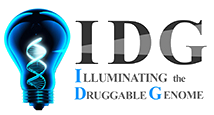Drug results: 33
| cloxacillin | A semi-synthetic antibiotic that is a chlorinated derivative of OXACILLIN. |
|
| oxacillin | An antibiotic similar to FLUCLOXACILLIN used in resistant staphylococci infections. |
|
| benzylpenicillin | A group of antibiotics that contain 6-aminopenicillanic acid with a side chain attached to the 6-amino group. The penicillin nucleus is the chief structural requirement for biological activity. The side-chain structure determines many of the antibacterial and pharmacological characteristics. (Goodman and Gilman's The Pharmacological Basis of Therapeutics, 8th ed, p1065) |
|
| hetacillin |
|
|
| dicloxacillin | One of the PENICILLINS which is resistant to PENICILLINASE. |
|
| nafcillin | A semi-synthetic antibiotic related to penicillin. |
|
| meticillin | One of the PENICILLINS which is resistant to PENICILLINASE but susceptible to a penicillin-binding protein. It is inactivated by gastric acid so administered by injection. |
|
| phenoxymethylpenicillin | A broad-spectrum penicillin antibiotic used orally in the treatment of mild to moderate infections by susceptible gram-positive organisms. |
|
| benzathine benzylpenicillin | Semisynthetic antibiotic prepared by combining the sodium salt of penicillin G with N,N'-dibenzylethylenediamine. | |
| procaine benzylpenicillin | Semisynthetic antibiotic prepared by combining penicillin G with PROCAINE. | |
| azlocillin | A semisynthetic ampicillin-derived acylureido penicillin. |
|
| penimepicycline | ||
| almecillin |
|
|
| adicillin |
|
|
| cefdinir | A third-generation oral cephalosporin antibacterial agent that is used to treat bacterial infections of the respiratory tract and skin. |
|
| pheneticillin | pheneticillin (feneticillin) is an oral acid resistant penicillin analogous to penicillin V with a range of antimicrob activity similar to penicillin G |
|
| ertapenem | Ertapenem has in vitro activity against Gram-positive and Gram-negative aerobic and anaerobic bacteria. The bactericidal activity of ertapenem results from the inhibition of cell wall synthesis and is mediated through ertapenem binding to penicillin binding proteins (PBPs). In Escherichia coli, it has strong affinity toward PBPs 1a, 1b, 2, 3, 4 and 5 with preference for PBPs 2 and 3. |
|
| valine | A branched-chain essential amino acid that has stimulant activity. It promotes muscle growth and tissue repair. It is a precursor in the penicillin biosynthetic pathway. |
|
| ceftolozane | Ceftolozane belongs to the cephalosporin class of antibacterial drugs. The bactericidal action of ceftolozane results from inhibition of cell wall biosynthesis, and is mediated through binding to penicillin-binding proteins (PBPs). Ceftolozane is an inhibitor of PBPs of P. aeruginosa (e.g., PBP1b, PBP1c, and PBP3) and E. coli (e.g., PBP3). |
|
| ceftaroline fosamil | Ceftaroline is a cephalosporin antibacterial drug with in vitro activity against Gram-positive and -negative bacteria. The bactericidal action of ceftaroline is mediated through binding to essential penicillin-binding proteins (PBPs). Ceftaroline is bactericidal against S. aureus due to its affinity for PBP2a and against Streptococcus pneumoniae due to its affinity for PBP2x. |
|
| mezlocillin | Semisynthetic ampicillin-derived acylureido penicillin. It has been proposed for infections with certain anaerobes and may be useful in inner ear, bile, and CNS infections. |
|
| azidocillin | antibiotic similir to ampicillin; minor descriptor (75-86); on line & INDEX MEDICUS search PENICILLIN G/AA (75-86); RN given refers to (2S-(2alpha,5alpha,6beta(S*))-isomer) |
|
| epicillin | semisynthetic penicillin type antibiotic; minor descriptor (75-85); on-line & Index Medicus search AMPICILLIN/AA (75-85); RN given refers to (2s(2alpha,5alpha,6beta(S*)))-isomer |
|
| relebactam | RECARBRIO is a combination of imipenem/cilastatin and relebactam. Imipenem is a penem antibacterial drug, cilastatin sodium is a renal dehydropeptidase inhibitor, and relebactam is a beta lactamase inhibitor. Cilastatin limits the renal metabolism of imipenem and does not have antibacterial activity. The bactericidal activity of imipenem results from binding to PBP 2 and PBP 1B in Enterobacteriaceae and Pseudomonas aeruginosa and the subsequent inhibition of penicillin binding proteins (PBPs). Inhibition of PBPs leads to the disruption of bacterial cell wall synthesis. Imipenem is stable in the presence of some beta lactamases. Relebactam has no intrinsic antibacterial activity. Relebactam protects imipenem from degradation by certain serine beta lactamases such as Sulhydryl Variable (SHV), Temoneira (TEM), Cefotaximase-Munich 13 Reference ID: 4462927 (CTX-M), Enterobacter cloacae P99 (P99), Pseudomonas-derived cephalosporinase (PDC), and Klebsiella-pneumoniae carbapenemase (KPC) |
|
| tebipenem pivoxil | an oral carbapenem antibiotic, against penicillin-nonsusceptible Streptococcus pneumoniae |
|
| sulbenicillin | Semisynthetic penicillin-type antibiotic. |
|
| cefiderocol | Cefiderocol is a cephalosporin antibacterial with activity against Gram-negative aerobic bacteria. Cefiderocol functions as a siderophore and binds to extracellular free ferric iron. In addition to passive diffusion via porin channels, cefiderocol is actively transported across the outer cell membrane of bacteria into the periplasmic space using a siderophore iron uptake mechanism. Cefiderocol exerts bactericidal action by inhibiting cell wall biosynthesis through binding to penicillin-binding proteins (PBPs) |
|
| meropenem | an antibacterial drug readily penetrates the cell wall of most Gram-positive and Gram-negative bacteria to reach penicillin-binding-protein (PBP) targets, the bactericidal activity of meropenem results from the inhibition of cell wall synthesis |
|
| propicillin | major descriptor (64-84); on-line search PENICILLIN, PHENOXYMETHYL/AA (64-84); Index Medicus search PROPICILLIN (64-84); RN given refers to parent cpd(2S-(2alpha,5alpha,6beta))-isomer |
|
| carbenicillin | Broad-spectrum semisynthetic penicillin derivative used parenterally. It is susceptible to gastric juice and penicillinase and may damage platelet function. |
|
| ampicillin | Semi-synthetic derivative of penicillin that functions as an orally active broad-spectrum antibiotic. |
|
| penicillamine | 3-Mercapto-D-valine. The most characteristic degradation product of the penicillin antibiotics. It is used as an antirheumatic and as a chelating agent in Wilson's disease. |
|
| ticarcillin | An antibiotic derived from penicillin similar to CARBENICILLIN in action. |
|



